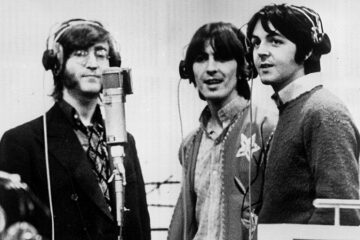The Beatles’ meteoric rise to fame left little time for pause and reflection. Driven by relentless pressure to churn out hit after hit, the Fab Four occasionally released tracks that prioritized melody over meaning. Not every song crafted during this whirlwind era was brimming with deep messages or revolutionary intent.
The band honed their craft during their grueling Hamburg residency, performing up to six times daily. This experience not only solidified their reputation as a formidable live act but also sharpened their songwriting skills. Early Beatles songs, while bursting with youthful charm, often focused on delivering catchy tunes and infectious energy rather than profound narratives.
Tracks like “I Want to Hold Your Hand” epitomize this era, where their pop sensibilities and harmonious arrangements took center stage. Though their lyrics often played a secondary role, the optimism and joy they conveyed resonated deeply with millions worldwide, sparking the phenomenon of Beatlemania.
By 1966, The Beatles had shifted gears, retiring from touring to focus on experimental studio work. However, just two years earlier, their rapid creative output sometimes led to what John Lennon later described as artistic shortcuts. A prime example is 1964’s “I Should Have Known Better,” featured on A Hard Day’s Night. Originally, Lennon praised the song, describing it as one of his favorites from the soundtrack.
In the film, the harmonica-driven tune is memorably used during the opening train sequence. Lennon initially spoke highly of it, stating:
“There are four I really go for: ‘Can’t Buy Me Love,’ ‘If I Fell,’ ‘I Should Have Known Better,’ and ‘Tell Me Why.’”
However, in a 1980 interview with Playboy, Lennon’s tone shifted drastically. Reflecting on his earlier works, he dismissed the song as superficial, remarking bluntly:
“Just a song; it doesn’t mean a damn thing.”
This stark critique reflected Lennon’s evolution as both an artist and an individual. By the time of this interview, he had endured life-altering experiences such as divorce and struggles with addiction. These challenges reshaped his perspective, making it difficult for him to relate to the carefree compositions of his youth.
Elsewhere in the same interview, Lennon critiqued other Beatles songs, including “I’ll Get You,” which he described as a failed collaboration with Paul McCartney. Even the revered classic “Yesterday” wasn’t immune to his scrutiny. While acknowledging its brilliance, Lennon lamented its lack of narrative resolution:
“The lyrics don’t resolve into any sense… they’re good lines, but the song doesn’t really say anything. She left, and he wishes it were yesterday— that much you get, but it doesn’t resolve.”
Despite Lennon’s harsh reassessment, “I Should Have Known Better” remains an enduring piece of pop history. Its infectious melody and heartfelt delivery are quintessentially Beatles, a reminder of the magic they could conjure even under the immense pressure of their early career.



